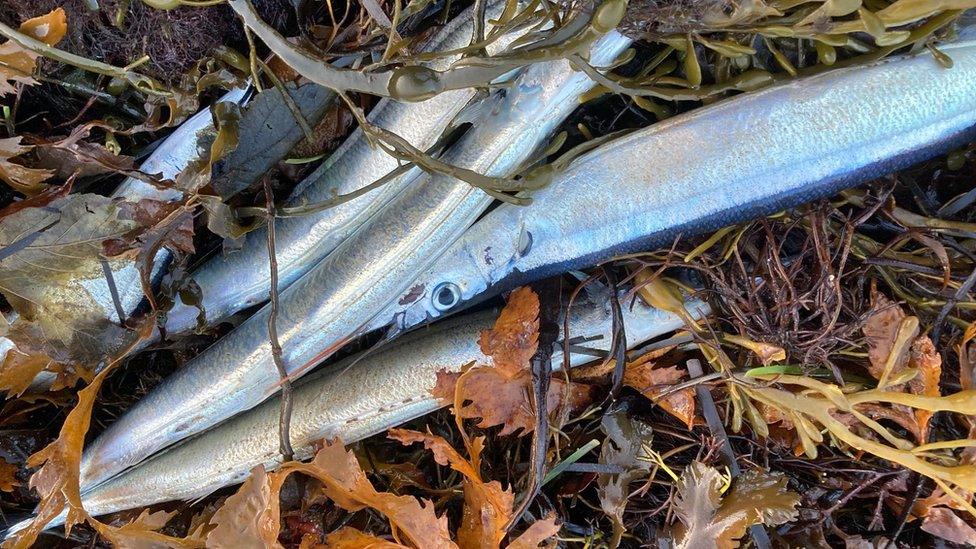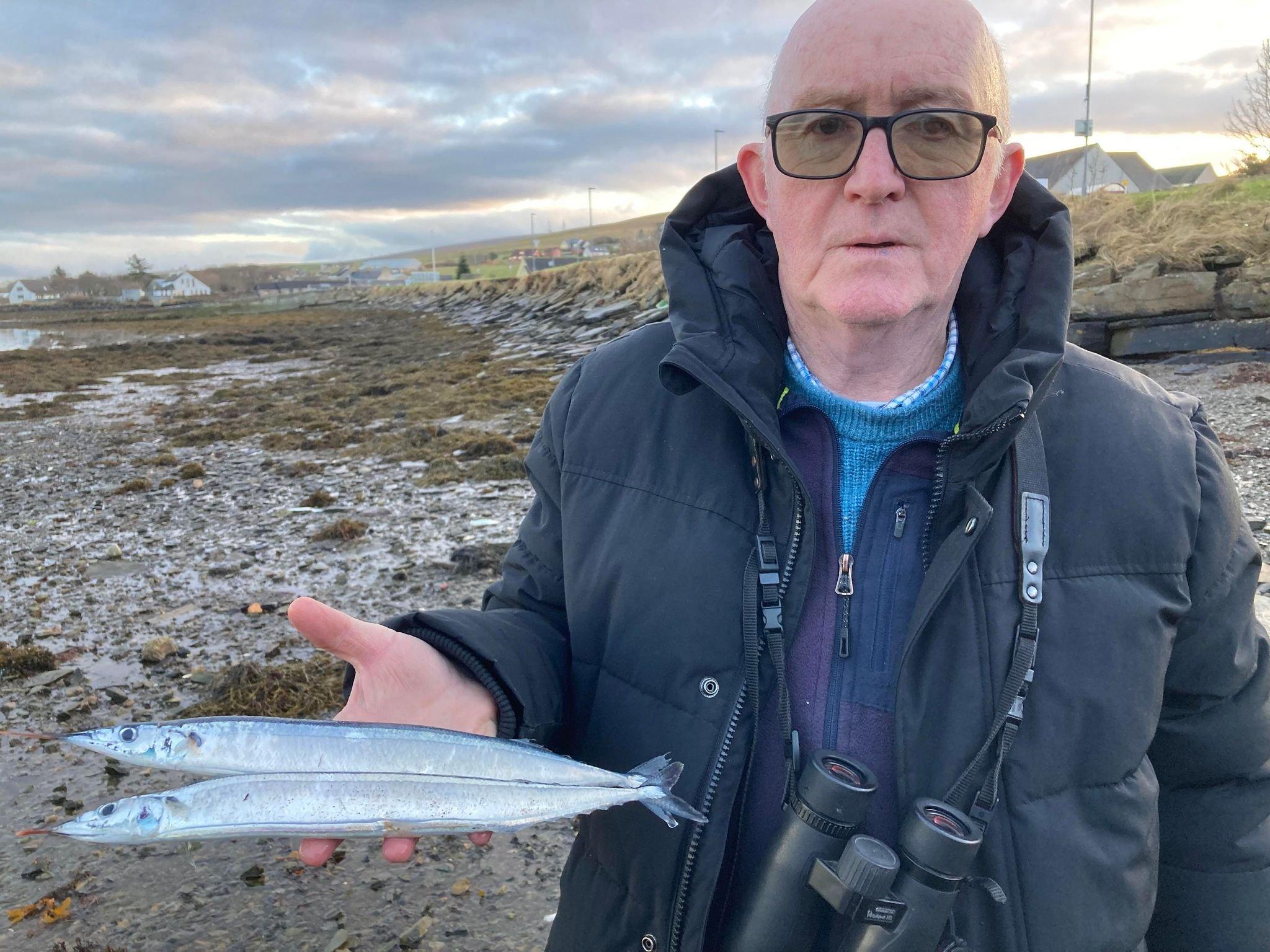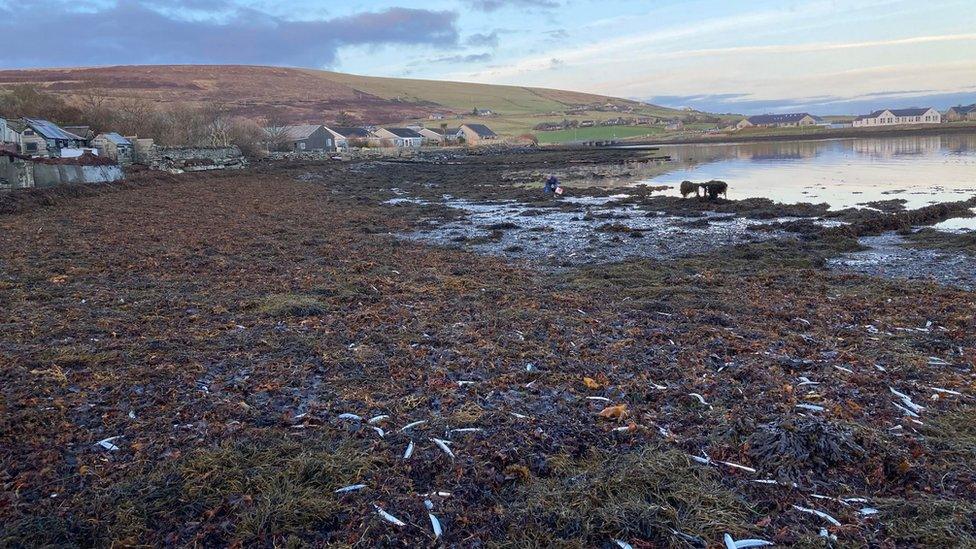Mass strandings of rare fish baffle Orkney residents
- Published

Saury are sometimes confused with garfish, which are more common in the seas off Orkney
People in Orkney have been left baffled by the stranding of thousands of fish on beaches in Shapinsay and Finstown.
Atlantic saury are considered to be rare in local waters.
But in the last few days thousands of them have apparently deliberately swum ashore to die.
Malcolm Russell, secretary of the Orkney Trout Fishing Association, told BBC Radio Orkney that some fish he returned to the sea turned back and grounded themselves again.
In October last year one or two local fisherman posted on social media that they had landed a few Atlantic saury.

Malcolm Russell lives in Finstown and is secretary of the Orkney Trout Fishing Association
Residents have reported seeing thousands on beaches including Elwick Bay in Shapinsay and the Bay of Firth at Finstown.
It is not clear why the fish appear to have decided to ground themselves in this way.
'Number of possible causes'
Malcolm Russell says it is possible that they were following sand eels into the bay, or that heavy rain at the weekend made the water much less salty than usual.
However, he said he could not explain why they did not swim the other way - back to the Atlantic - once they got into difficulty.

Hundreds of dead fish lie along the shoreline at the Bay of Firth
Dr David Donnan, NatureScot's marine sustainability manager, said: "Saury are known to occur in shoals close to shore and sometimes occur in large numbers. There are occasional records of saury being stranded, for example there are records from the Cape Cod area on the American east coast.
"There are a number of possible causes for stranding, including lack of food or poor weather conditions, such as extreme cold and stormy conditions. As well, sometimes saury may be pursued in shallow waters by predators.
"Therefore, it's difficult to point to a specific cause in this case and that is not unusual. It's probably more likely to be a natural cause than a human-induced one."
The Scottish Environment Protection Agency (Sepa) said one of its officers visited the Bay of Firth site in Finstown on Tuesday "and found no evidence of pollution".
A spokesperson said: "There have also been no recent reports of pollution events in the Bay of Firth or in Elwick Bay in Shapinsay.
"While it is difficult to conclude the exact reason for this occurrence, it was most likely a natural event."